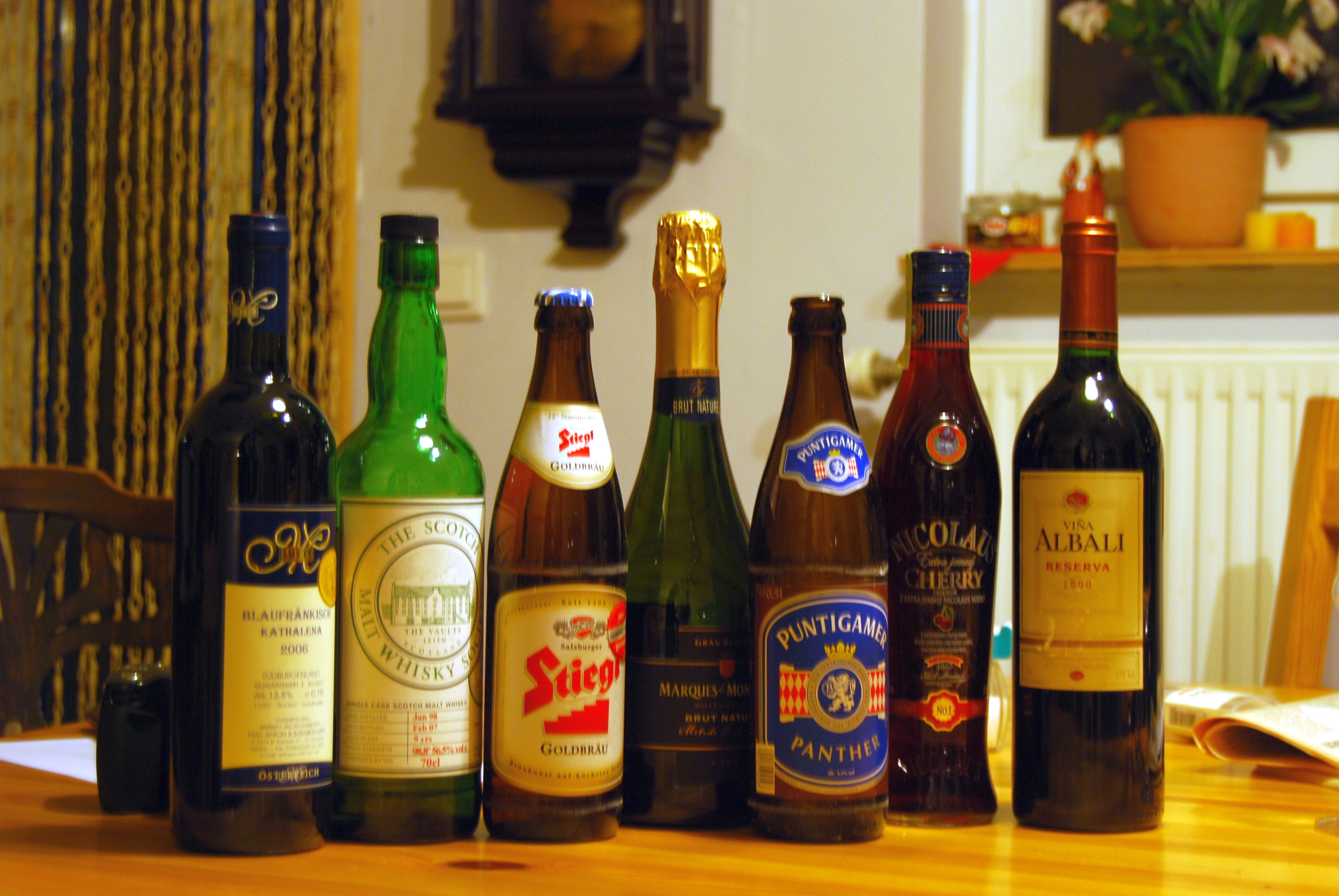|
Der Kommissar (TV Series)
''Der Kommissar'' (English ''The Police Inspector'') is a German television series about a group of detectives of the Munich homicide squad (''Mordkommission''). All 97 episodes (55 minutes each), which were shot in black-and-white and first broadcast between 1969 and 1976, were written by Herbert Reinecker and starred Erik Ode as Kommissar Herbert Keller. Keller's assistants were Walter Grabert (Günther Schramm), Robert Heines (Reinhard Glemnitz), and Harry Klein (Fritz Wepper) who, in 1974, was replaced by his younger brother (also in real life) Erwin Klein (Elmar Wepper). History Today considered cult television, ''Der Kommissar'' had many of the ingredients of the whodunnit: a murder victim, often unidentified at first; a group of suspects who gradually emerge as the police gather all the evidence available to them; and a police detective who, by sheer reasoning, figures out all by himself who the murderer is, while he has his assistants do all the legwork. In some episod ... [...More Info...] [...Related Items...] OR: [Wikipedia] [Google] [Baidu] |
Herbert Reinecker
Herbert Reinecker (24 December 1914 – 27 January 2007) was a very prolific German novelist, dramatist, screenwriter and former Nazi SS officer. Career Born in Hagen, Westphalia, Reinecker began to write short story, short stories already as a high school student. In 1936 he moved to Berlin, where he became editor-in-chief of a youth magazine, ''Jungvolk''. In the same year he also co-authored a book, ''Jugend in Waffen'' (''Armed Youth''). This was a time when the Nazism, Nazis had already been in power for three years and when the media had long been ''Gleichschaltung, gleichgeschaltet''. In 1943 he joined the Nazi Party and worked as the editor-in-chief of a book entitled ''Der Pimpf'' about the training system of the Hitler Youth. Throughout World War II Reinecker served in a propaganda company of the Waffen SS. In the early 1940s Reinecker also wrote a number of plays, among them ''Das Dorf bei Odessa'', and the novel ''Der Mann mit der Geige''. In 1944 in literature, 1944 h ... [...More Info...] [...Related Items...] OR: [Wikipedia] [Google] [Baidu] |
Disco
Disco is a genre of dance music and a subculture that emerged in the 1970s from the United States' urban nightlife scene. Its sound is typified by four-on-the-floor beats, syncopated basslines, string sections, brass and horns, electric piano, synthesizers, and electric rhythm guitars. Disco started as a mixture of music from venues popular with Italian Americans, Hispanic and Latino Americans and Black Americans "'Broadly speaking, the typical New York discothèque DJ is young (between 18 and 30) and Italian,' journalist Vince Lettie declared in 1975. ..Remarkably, almost all of the important early DJs were of Italian extraction .. Italian Americans have played a significant role in America's dance music culture .. While Italian Americans mostly from Brooklyn largely created disco from scratch .." in Philadelphia and New York City during the late 1960s and early 1970s. Disco can be seen as a reaction by the 1960s counterculture to both the dominance of rock music ... [...More Info...] [...Related Items...] OR: [Wikipedia] [Google] [Baidu] |
Heinz Bennent
Heinz Bennent (18 July 1921 – 12 October 2011) was a German actor. Biography Bennent was born in Stolberg, and served in the Luftwaffe during World War II. His career began after the end of World War II in Göttingen. He moved to Switzerland in the 1970s, where he lived until his death at age 90. He was survived by his son, actor David Bennent, and daughter, actress Anne Bennent. Selected filmography Film *1959: ''Arzt aus Leidenschaft'' .... Walter Wichert *1960: ''Madame Pompadour'' .... Dichter Joseph Calicot *1967: ' .... Ulrich *1972: ''Les rendez-vous en forêt'' .... Akos *1974: ''Perahim - die zweite Chance'' *1975: ''Section spéciale'' .... Major Beumelburg *1975: ''Ice Age'' .... Pastor Holm *1975: ''The Lost Honour of Katharina Blum'' .... Dr. Hubert Blorna *1975: '' The Net'' .... Inspector Canonica *1976: ''Une femme fatale'' .... Moritz Korber *1976: ' .... Philip Ashby *1976: '' I Want to Live'' .... Professor Wolfgang Mach *1976: ' .... Doctor Relling *1977 ... [...More Info...] [...Related Items...] OR: [Wikipedia] [Google] [Baidu] |
Universum Film AG
UFA GmbH, shortened to UFA (), is a film and television production company that unites all production activities of the media conglomerate Bertelsmann in Germany. Its name derives from Universum-Film Aktiengesellschaft (normally abbreviated as ''UFA''), a major German film company headquartered in Babelsberg, producing and distributing motion pictures from 1917 until the end of the Nazi era. The name UFA was revived by Bertelsmann for an otherwise unrelated film and television outfit, UFA GmbH. The original UFA was established as Universum-Film Aktiengesellschaft on December 18, 1917, as a direct response to foreign competition in film and propaganda. UFA was founded by a consortium headed by Emil Georg von Stauß, a former Deutsche Bank board member. In March 1927, Alfred Hugenberg, an influential German media entrepreneur and later Minister of the Economy, Agriculture and Nutrition in Hitler's cabinet, purchased UFA and transferred ownership of it to the Nazi Party in 1933. ... [...More Info...] [...Related Items...] OR: [Wikipedia] [Google] [Baidu] |
Alcoholic Beverage
An alcoholic beverage (also called an alcoholic drink, adult beverage, or a drink) is a drink that contains ethanol, a type of alcohol that acts as a drug and is produced by fermentation of grains, fruits, or other sources of sugar. The consumption of alcoholic drinks, often referred to as "drinking", plays an important social role in many cultures. Most countries have laws regulating the production, sale, and consumption of alcoholic beverages. Regulations may require the labeling of the percentage alcohol content (as ABV or proof) and the use of a warning label. Some countries ban such activities entirely, but alcoholic drinks are legal in most parts of the world. The global alcoholic drink industry exceeded $1 trillion in 2018. Alcohol is a depressant, which in low doses causes euphoria, reduces anxiety, and increases sociability. In higher doses, it causes drunkenness, stupor, unconsciousness, or death. Long-term use can lead to an alcohol use disorder, an incre ... [...More Info...] [...Related Items...] OR: [Wikipedia] [Google] [Baidu] |
Cigarette
A cigarette is a narrow cylinder containing a combustible material, typically tobacco, that is rolled into thin paper for smoking. The cigarette is ignited at one end, causing it to smolder; the resulting smoke is orally inhaled via the opposite end. Cigarette smoking is the most common method of tobacco consumption. The term ''cigarette'', as commonly used, refers to a tobacco cigarette, but the word is sometimes used to refer to other substances, such as a cannabis cigarette or an herbal cigarette. A cigarette is distinguished from a cigar by its usually smaller size, use of processed leaf, and paper wrapping, which is typically white. Since the 1920s, scientists and doctors have been able to link smoking with respiratory illness. Researchers have identified negative health effects from smoking cigarettes such as cancer, chronic obstructive pulmonary disease (COPD), heart disease, and other health problems relating to nearly every organ of the body. Nicotine, the psycho ... [...More Info...] [...Related Items...] OR: [Wikipedia] [Google] [Baidu] |
Shift Work
Shift work is an employment practice designed to make use of, or provide service across, all 24 hours of the clock each day of the week (often abbreviated as '' 24/7''). The practice typically sees the day divided into shifts, set periods of time during which different groups of workers perform their duties. The term "shift work" includes both long-term night shifts and work schedules in which employees change or rotate shifts. In medicine and epidemiology, shift work is considered a risk factor for some health problems in some individuals, as disruption to circadian rhythms may increase the probability of developing cardiovascular disease, cognitive impairment, diabetes, altered body composition and obesity, among other conditions. History The shift work system in modern industrial manufacturing originated in the late 18th century. In 1867, Karl Marx wrote on the shift work system in ''Capital, Volume 1'': Capitalist production therefore drives, by its inherent nature, tow ... [...More Info...] [...Related Items...] OR: [Wikipedia] [Google] [Baidu] |
Landlady
A landlord is the owner of a house, apartment, condominium, land, or real estate which is rented or leased to an individual or business, who is called a tenant (also a ''lessee'' or ''renter''). When a juristic person is in this position, the term landlord is used. Other terms include lessor and owner. The term landlady may be used for the female owners. The manager of a pub in the United Kingdom, strictly speaking a licensed victualler, is referred to as the landlord/landlady. In political economy it refers to the owner of natural resources alone (e.g., land, not buildings) from which an economic rent is the income received. History The concept of a landlord may be traced back to the feudal system of manoralism ( seignorialism), where a landed estate is owned by a Lord of the Manor (mesne lords), usually members of the lower nobility which came to form the rank of knights in the high medieval period, holding their fief via subinfeudation, but in some cases the land may also ... [...More Info...] [...Related Items...] OR: [Wikipedia] [Google] [Baidu] |
Polyamory
Polyamory () is the practice of, or desire for, romantic relationships with more than one partner at the same time, with the informed consent of all partners involved. People who identify as polyamorous may believe in open relationships with a conscious management of jealousy and reject the view that sexual and relational exclusivity are prerequisite for deep, committed, long-term, loving relationships. Others prefer to restrict their sexual activity to only members of the group, a closed polyamorous relationship that is usually referred to as polyfidelity. ''Polyamory'' has come to be an umbrella term for various forms of non-monogamous, multi-partner relationships, or non-exclusive sexual or romantic relationships. Its usage reflects the choices and philosophies of the individuals involved, but with recurring themes or values, such as love, intimacy, honesty, integrity, equality, communication, and commitment. It can sometimes be distinguished from some other forms of ... [...More Info...] [...Related Items...] OR: [Wikipedia] [Google] [Baidu] |
Bourgeoisie
The bourgeoisie ( , ) is a social class, equivalent to the middle or upper middle class. They are distinguished from, and traditionally contrasted with, the proletariat by their affluence, and their great cultural and financial capital. They are sometimes divided into a petty (), middle (), large (), upper (), and ancient () bourgeoisie and collectively designated as "the bourgeoisie". The bourgeoisie in its original sense is intimately linked to the existence of cities, recognized as such by their urban charters (e.g., municipal charters, town privileges, German town law), so there was no bourgeoisie apart from the citizenry of the cities. Rural peasants came under a different legal system. In Marxist philosophy, the bourgeoisie is the social class that came to own the means of production during modern industrialization and whose societal concerns are the value of property and the preservation of capital to ensure the perpetuation of their economic supremacy in society. ... [...More Info...] [...Related Items...] OR: [Wikipedia] [Google] [Baidu] |
Sexual Revolution
The sexual revolution, also known as the sexual liberation, was a social movement that challenged traditional codes of behavior related to sexuality and interpersonal relationships throughout the United States and the developed world from the 1960s to the 1970s. Sexual liberation included increased acceptance of sex outside of traditional heterosexual, monogamous relationships (primarily marriage). The normalization of contraception and the pill, public nudity, pornography, premarital sex, homosexuality, masturbation, alternative forms of sexuality, and the legalization of abortion all followed. Origins First sexual revolution Several other periods in Western culture have been called the "first sexual revolution", to which the 1960s revolution would be the second (or later). The term "sexual revolution" itself has been used since at least the late 1920s. The term appeared as early as 1929; the book ''Is Sex Necessary? Or, Why You Feel the Way You Do'' by James Thurber and E. B ... [...More Info...] [...Related Items...] OR: [Wikipedia] [Google] [Baidu] |






_c1971.jpg)